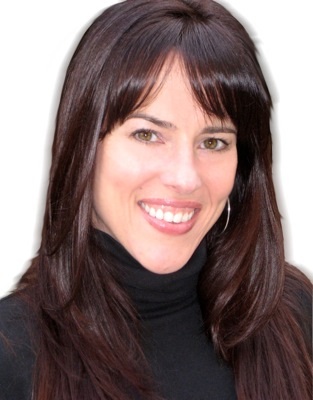Anonymous twelve-step programs have helped millions recover from addictions. Yet it is also possible to use the spiritual underpinnings of the programs to avoid addiction-related problems instead of dealing with them, says researcher and psychotherapist Ingrid Mathieu in her new book. We explored these topics in an interview.

Rosenberg: In your recently published book, Recovering Spirituality, you address the concept of spiritual bypass in which recovering people can use spiritual practices to sidestep emotional work. You write that because addicts are sensitive and lean toward "symptom relief," a recovering person may "use the program just as he used his drug of choice."
Mathieu: Yes, a lot of times addicts can expect great happiness, the proverbial "cash and prizes," after they get clean and sober and when it doesn't occur, they can attempt to flee from uncomfortable feelings via spiritual bypass. I write in Recovering Spirituality that rather than feeling like they are failures or not working their program correctly, the recovery experience should be reframed to include pain and feelings of being "stuck."
Rosenberg: Some of the people whose stories you recount in the book use prayer, meditation, chanting and service work to, as you put it, "check out from life." Others try to manipulate the outcomes of prayer or even their higher power.
Mathieu: Yes, prayer when it's fused with financial gain can become less about a connection with a higher power and more of an attempt to control. When using all of the tools in the program, I encourage people to discern if they are attempting to "check out" (fix, change, remove, ignore their issues) or to "check in" (be present to their issues and experiences).
Rosenberg: In other stories you recount, a person uses a ninth step amend to an old lover as a bid to rekindle romantic feelings, and another gets re-hooked on smoking. Is getting addicted to another things, "changing rooms on the Titanic" as it is often called, part of the spiritual bypass?
Mathieu: I don't want to create the message that if you are working your program the "right way," you won't experience blind spots in your step-work, or that you won't use food or another substance to some degree. We can't avoid these things entirely and sometimes we need some "defending." Defenses, like spiritual bypass or using other things to fill the void, can be both adaptive and maladaptive. In other words, defenses aren't all bad, and they can sometimes have a positive outcome. They can cause us to hit another bottom, which invites us to look at some of our original reasons for drinking and drugging. Recovery is a perpetual process of peeling back layers of the onion.
Rosenberg: You give some examples in the book of how sponsorship advice can be too general and might foster spiritual bypass. For example, in one story, a woman who has ceased to like her home group is told by her sponsor to "pray about it" or perhaps, "call another alcoholic." What would be better advice?
Mathieu: Many people that I have interviewed or worked with in recovery have felt like "blanket solutions" that are offered do not always meet them where they are, or don't leave room to feel their feelings. Perhaps the sponsor could ask if the person has shared the uncomfortable feelings in the meeting itself, which would open both the person and others to explore the difficulty. Also, the sponsor can remind the person that it is okay to tolerate some discomfort. The "solution" can sometimes be to allow for the experience of pain, rather than attempting to get rid of it.
Rosenberg: How do recovering people know if a spiritual practice that feels uncomfortable is correct and necessary or if it's the mark of a spiritual bypass?
Mathieu: Well, much of my research made it abundantly clear that there are at least two sides to every story. Sometimes, acting "as if" is a powerful solution. For example, acting as if you don't want to drink will garner another sober day. Other times, acting "as if" is an attempt to overcome the essence of who you are. You can act as if you do not have your personal history, or any feelings about it, but acting this way does not erase your truth. Behavioral techniques such as "fake it till you make it" can be useful bridges between old behavior patterns and new ways of being, but they do not turn you into an entirely different person. I think the best guideline is for recovering people to trust their own process. I often encourage people to get curious about their experience, to ask themselves how something is -- or is not -- working for them; to become a witness to their own journey. This can lead to the other tenet of recovery: "To thine own self be true."
Rosenberg: What book are you working on as a follow-up to Recovering Spirituality?
Mathieu: My original intention of the research into spiritual bypass in recovery was to investigate the potential pitfalls. I have come out the other side with a deep appreciation for the human condition and more awareness that there is no finish line in recovery. We can't entirely avoid "mistakes" or "pitfalls." I have written about these findings in Recovering Spirituality, and would like to extend these ideas -- in the hope that we can give ourselves permission to be flawed and fallible, and to bring more compassion to what are sometimes rather challenging growing pains, that will inevitably be experienced over and over again.
"Recovering Spirituality: Achieving Emotional Sobriety in Your Spiritual Practice," by Ingrid Mathieu, Ph.D., is available in e-book and paperback format from Hazelden Publishing.
Dr. Mathieu's photo courtesy of Hazelden